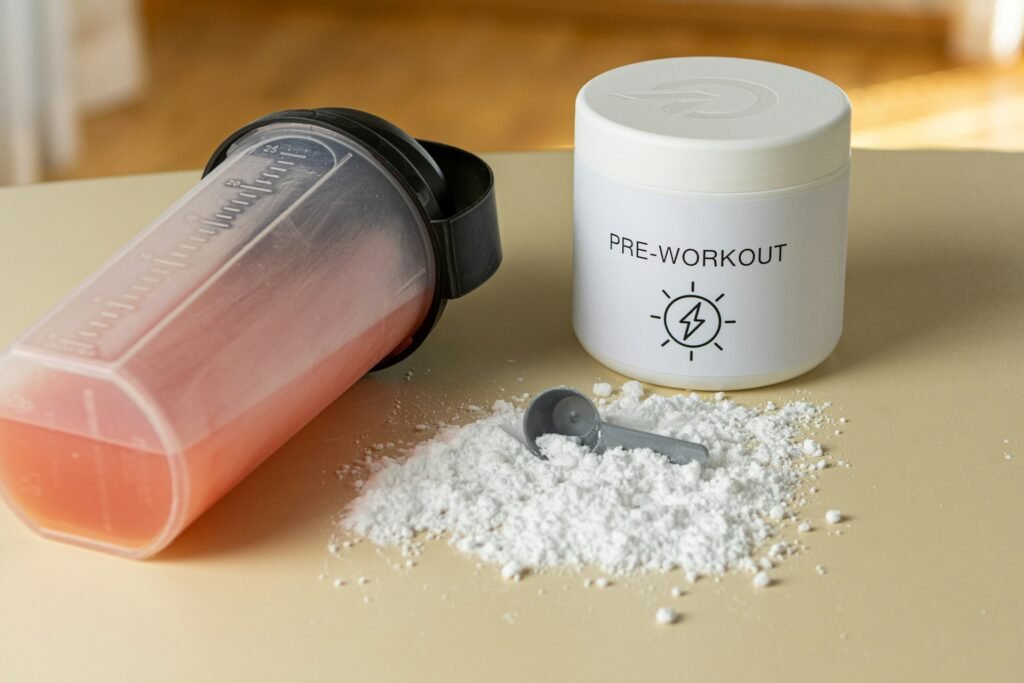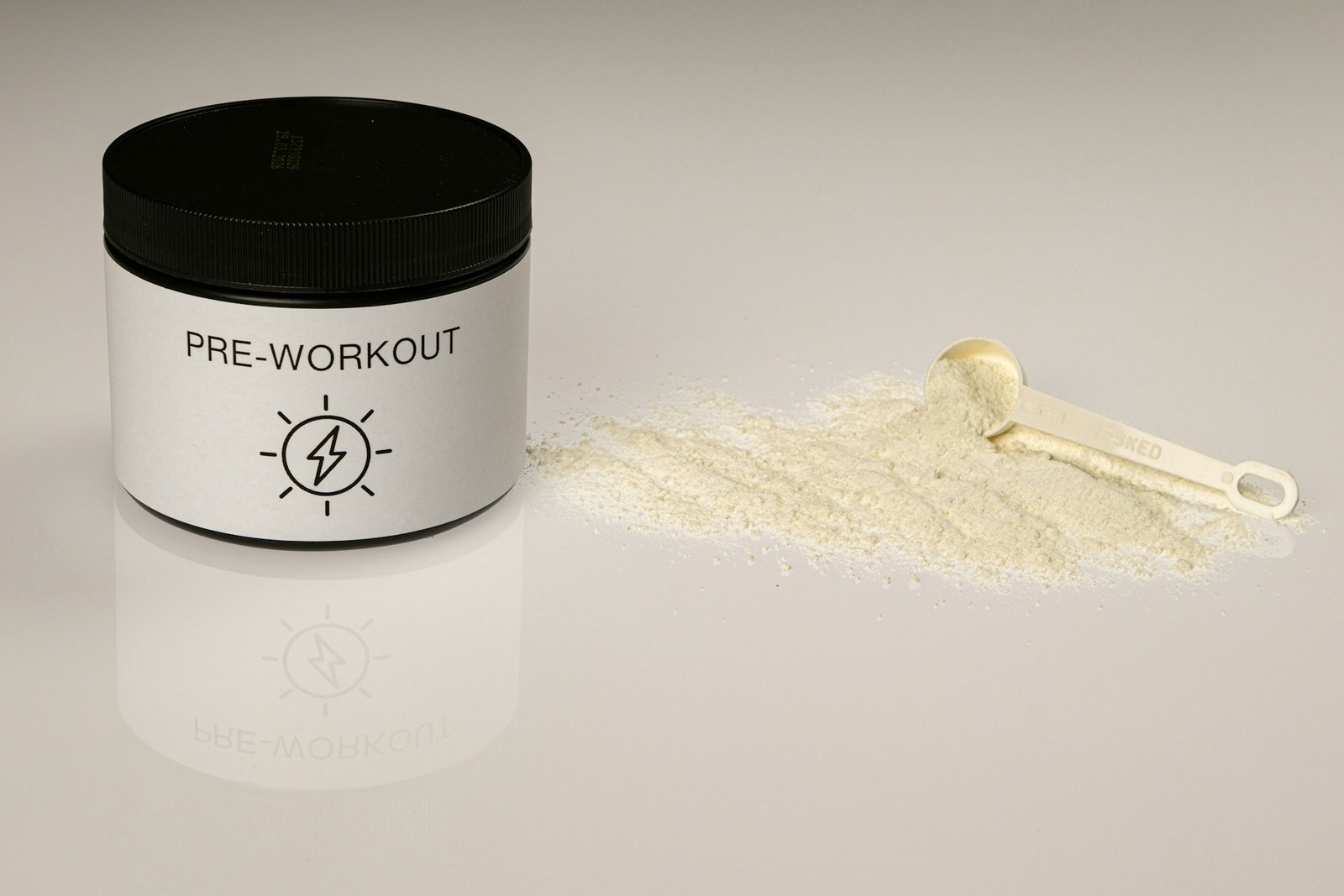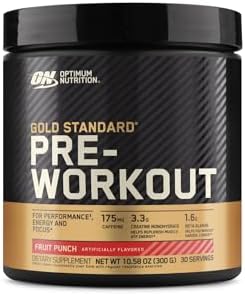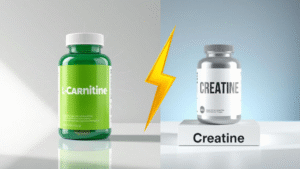If you’re serious about improving your home workouts, chances are you’ve considered using a pre workout supplement. Promising to enhance energy, focus, and endurance, these formulas have grown increasingly popular in the fitness world. But with so many products and mixed opinions, it’s easy to feel overwhelmed. Are they effective? Are they safe? And how should you even choose one?
This guide breaks down everything you need to know so you can make an informed decision about whether a pre-workout supplement fits into your fitness routine.
Table of Contents
What Are Pre Workout Supplements?

Pre-workout products are typically powdered or liquid formulas that you take before exercise to boost performance. They often contain a mix of stimulants, amino acids, and other ingredients designed to increase energy, focus, and endurance. While some people swear by them, others question whether they’re necessary, especially if you’re already fueling your body properly through nutrition.
At their core, pre-workouts aim to help you get more out of your training session—whether that means lifting heavier, performing more reps, or simply staying motivated to complete your routine.
Key Benefits of Using a Pre Workout
Enhanced Energy and Focus
The primary reason most people turn to these supplements is for a quick energy boost. The main stimulant found in almost all pre workouts is caffeine. It works by stimulating the central nervous system, helping you feel more awake, alert, and ready to tackle a challenging session. Research also suggests that caffeine can improve mental focus, memory, and reaction time, which may allow you to maintain better form and concentration during exercises.
Delaying Fatigue
Ingredients like beta-alanine can help delay muscle fatigue by buffering lactic acid accumulation. This means you might be able to perform a few extra reps or sustain higher intensity during a workout. While the effects aren’t instant, consistent use over time may improve muscular endurance.
Improved Muscle Pumps
Many supplements include vasodilators, such as citrulline and arginine, which help increase blood flow to the muscles. This leads to the “pump” effect—a feeling of tight, engorged muscles during exercise. While the pump itself doesn’t necessarily translate to long-term muscle growth, it can improve motivation and the overall training experience.
Potential Performance Enhancers
Some formulas also include creatine, which is widely recognized for its ability to improve strength, muscle mass, and recovery. However, it’s worth noting that creatine doesn’t provide an immediate boost during a workout. Its benefits accumulate over time, so taking it in a pre-workout isn’t strictly necessary.
Disclosure: We may earn a commission from links mentioned in this post, at no extra cost to you. We only recommend products we
Possible Drawbacks and Risks
While generally safe for most people, pre workout supplements aren’t risk-free. Being aware of potential downsides can help you use them more responsibly.
Excessive Stimulants
Overconsumption of caffeine is the most common concern. Many pre-workouts contain anywhere from 100 to 400 milligrams per serving, sometimes more. Combining a supplement with multiple cups of coffee or energy drinks can push your daily intake to unsafe levels, potentially causing increased heart rate, high blood pressure, anxiety, or insomnia.
Sleep Disruption
If you take a supplement later in the day, the stimulants can interfere with your sleep quality. Even if you fall asleep, your deep and restorative sleep phases may be reduced, affecting recovery, growth hormone production, and fat metabolism. Ideally, pre-workouts should be taken 30–60 minutes before exercise, preferably earlier in the day.
Digestive Discomfort
Some products contain artificial sweeteners or sugar alcohols to enhance taste without adding calories. While generally safe, these ingredients can cause bloating, gas, or diarrhea in sensitive individuals. It’s wise to test a small amount first to see how your body reacts.
Tingling Sensations
Ingredients like beta-alanine and niacin can produce a tingling or flushing sensation on the skin. Though harmless, it can be surprising if you’re not expecting it. Adjusting your dosage or selecting a formula without these compounds can help minimize this effect.
What to Look for in a Quality Supplement

Choosing a reliable product is essential. Since dietary supplements aren’t regulated as strictly as prescription medications, quality can vary widely between brands. Here are some tips:
- Third-Party Tested: Look for products certified by NSF International or USP to ensure the ingredients are accurately listed and free of harmful contaminants.
- Moderate Stimulant Levels: Start with a lower dose, especially if you’re sensitive to caffeine, and avoid exceeding 400 milligrams per serving.
- Proven Ingredients: Focus on formulas that contain ingredients with research-backed benefits, such as caffeine, beta-alanine, citrulline, and creatine.
- Avoid “Over-Hyped” Formulas: Products with excessive or exotic ingredients may be more about marketing than effectiveness. Stick to trusted brands with transparent labels.
Our Top Choice
- Get the only naturally sweetened and flavored pre workout powder with clinically effective doses of 6 ingredients that i…
- 54 peer-reviewed scientific studies support the effectiveness of Pulse preworkout’s precise combination of ingredients a…
- Best preworkout with no artificial sweeteners, flavors, food dyes, fillers, or other unnecessary junk. While these types…
Timing and Dosage Guidelines
To maximize effectiveness, pre-workout supplements should be taken about 30–60 minutes before your workout. This allows the ingredients to enter your bloodstream and start working when you need them most.
Caffeine dosage can be based on body weight, typically ranging from 3–4 mg per kilogram (or 1.3–2.7 mg per pound). For a 150-pound person, this translates to roughly 200–400 mg of caffeine. If you’re new to these supplements, start low and gradually increase as tolerated.
Alternatives to Pre-Workout
If you prefer to avoid supplements, there are natural ways to achieve similar benefits:
- Coffee or Tea: A simple cup of coffee provides caffeine and mental alertness without the need for a commercial supplement.
- Carbohydrate-Rich Snack: Eating carbs 1–2 hours before exercise can provide sustained energy.
- Hydration and Electrolytes: Proper hydration improves endurance, and electrolyte drinks can help maintain performance during intense sessions.
- Non-Stimulant Formulas: Some products focus on vasodilation and pumps without caffeine, suitable for evening workouts or caffeine-sensitive individuals.
If you’re interested in a deeper dive into safe and effective natural choices, check out our post on Natural Pre Workout: The Complete Guide to Safer, Smarter Energy Boosts.
Avoiding the Tolerance Trap
Regular use of high-dose stimulants can lead to tolerance, making you feel like you need a supplement just to train. Cycling your usage—taking breaks or alternating with lower-stimulant options—can help maintain sensitivity and reduce dependence. Green tea, coffee, or moderate doses of pre-workout can be rotated to avoid over-reliance.
Final Thoughts
Pre-workout supplements can be a valuable tool for improving energy, focus, and endurance during workouts, especially in a home gym setting. However, they are not essential, and their effectiveness varies between individuals. By choosing a quality product, monitoring dosage, and understanding your body’s response, you can enjoy the benefits while minimizing risks.
Remember, supplements are just one piece of the puzzle. Proper nutrition, consistent training, recovery, and sleep remain the most important factors for building strength, endurance, and muscle at home. Used responsibly, pre-workout products can help you push past plateaus and make your sessions more productive—and maybe even a little more fun.









